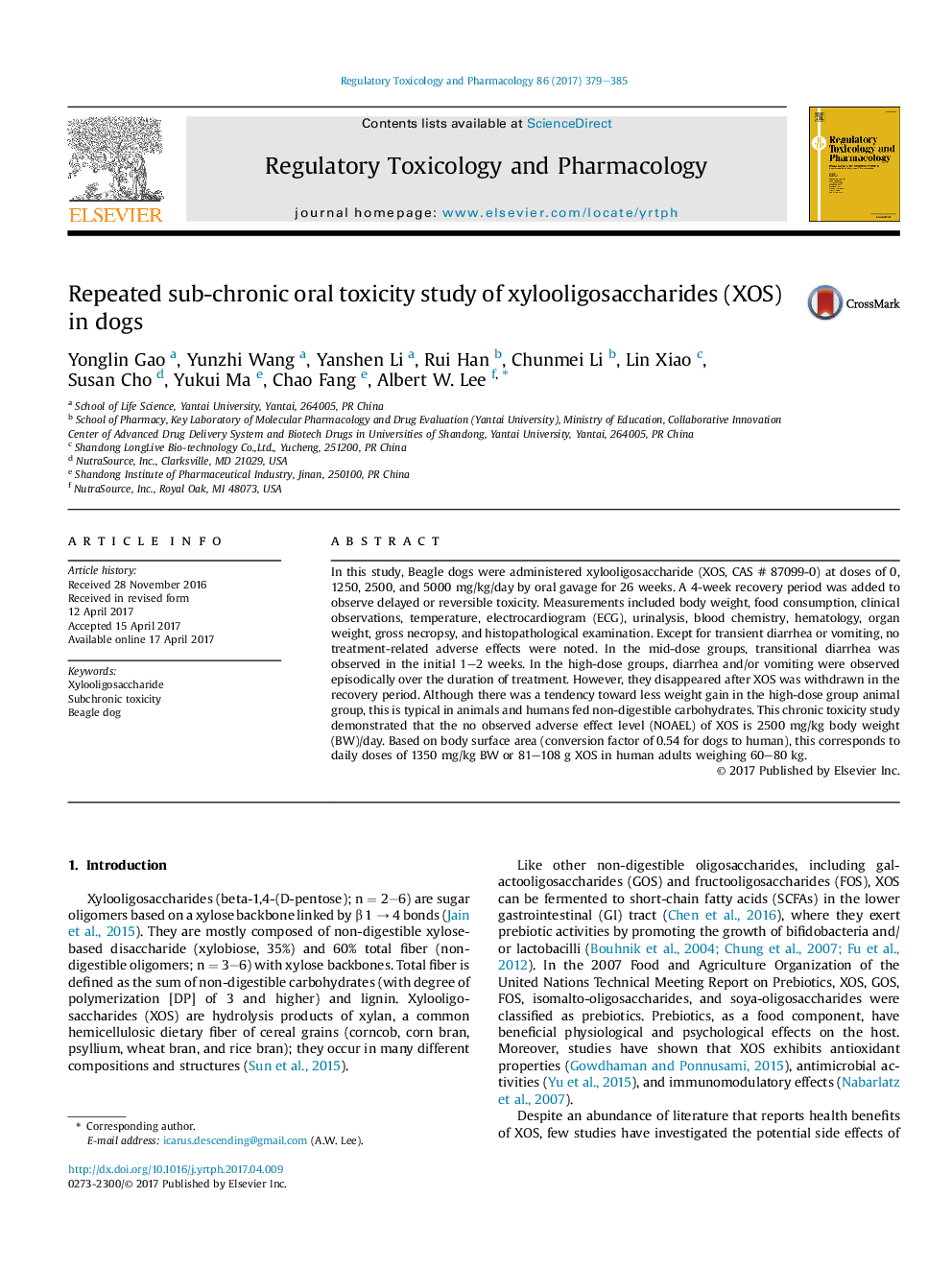| Article ID | Journal | Published Year | Pages | File Type |
|---|---|---|---|---|
| 5561274 | Regulatory Toxicology and Pharmacology | 2017 | 7 Pages |
â¢5000 mg/kg XOS induced episodically diarrhea and vomiting in 26-week dog toxicity.â¢5000 mg/kg XOS decreased body weight gain in 26-week dog toxicity.â¢NOAEL of XOS is 2500 mg/kg in 26-week dog toxicity.
In this study, Beagle dogs were administered xylooligosaccharide (XOS, CAS # 87099-0) at doses of 0, 1250, 2500, and 5000Â mg/kg/day by oral gavage for 26 weeks. A 4-week recovery period was added to observe delayed or reversible toxicity. Measurements included body weight, food consumption, clinical observations, temperature, electrocardiogram (ECG), urinalysis, blood chemistry, hematology, organ weight, gross necropsy, and histopathological examination. Except for transient diarrhea or vomiting, no treatment-related adverse effects were noted. In the mid-dose groups, transitional diarrhea was observed in the initial 1-2 weeks. In the high-dose groups, diarrhea and/or vomiting were observed episodically over the duration of treatment. However, they disappeared after XOS was withdrawn in the recovery period. Although there was a tendency toward less weight gain in the high-dose group animal group, this is typical in animals and humans fed non-digestible carbohydrates. This chronic toxicity study demonstrated that the no observed adverse effect level (NOAEL) of XOS is 2500Â mg/kg body weight (BW)/day. Based on body surface area (conversion factor of 0.54 for dogs to human), this corresponds to daily doses of 1350Â mg/kg BW or 81-108Â g XOS in human adults weighing 60-80Â kg.
